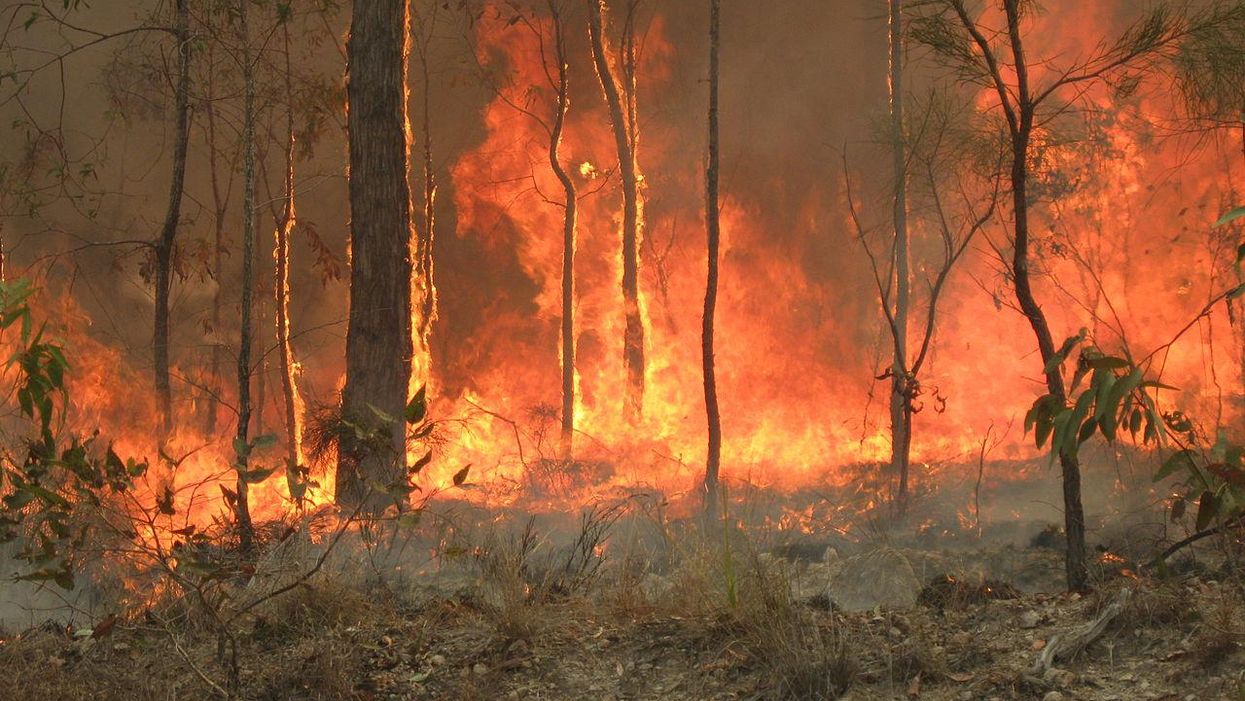Wall Street firms are investing more in ‘climate intelligence’ — and keeping valuable info to themselves: report


Climate change is not only a safety issue and an environmental issue — it is also an economic issue, as an increase in hurricanes, floods, tornados, droughts and wildfires is bound to have economic consequences. Wall Street, according to journalist Andrew Freedman, is paying more attention to “climate intelligence.” The bad news, Freedman reports, is that “ordinary homeowners” will have less access to information about the risks they are facing in their areas.
In an article published by Axios on January 7, Freedman explains, “The consolidation in the climate intelligence space threatens to lead to an asymmetry of access to information. If you’re a wealthy investor or large real estate firm, you can pay to find out which companies or regions will be safest from climate hazards, and make sound investment decisions. However, ordinary homeowners, such as those in the Denver suburbs who faced down a horrific, climate-fueled December wildfire on December 30, may be left with fewer no- or low-cost options to find out detailed information about their mounting risk exposure.”
Freedman cites some examples of Wall Street’s growing interest in “climate intelligence.”
The journalist observes, “Big ratings agencies such as Moody’s and S&P Global, along with other financial firms, are vacuuming up companies specializing in modeling physical climate risks…. The latest consolidation in the ‘climate intelligence’ space arrived this week with S&P’s purchase of The Climate Service, a climate risk consulting firm. The Climate Service analyzes physical climate risks, including extreme temperatures, coastal flooding and water stress, along with so-called transition risks, including changing regulatory and market conditions.”
A wind-driven Colorado wildfire destroyed hundreds of homes and displaced thousands of people. The swiftly spreading prairie grass fire was believed to have been ignited by sparks from power lines and transformers toppled by high winds https://reut.rs/3zbBrX0\u00a0pic.twitter.com/sDHPZkz2JS— Reuters (@Reuters) 1640956500
LIVE: #PHILADELPHIA FLOODING UPDATE l Officials are providing an update after historic flooding has submerged parts of the city following remnants of #Ida https://cbsloc.al/3taQKfD— CBS Philly (@CBS Philly) 1630595740
Major Wall Street firms like Moody’s and S&P, according to Freedman, are “incorporating climate risk analysis into their ratings of companies, sovereign funds and more” as well as “seeking to flag any systemic risks to the financial system related to climate change.” Moody’s, Freedman notes, “has rolled out a variety of climate products for institutional investors, banks, private equity firms and individuals looking to invest in companies that are prepared for a more carbon-constrained world.”
Flash floods hit New York City as the remnants of Hurricane Ida battered the region with rain and subway stations were flooded.pic.twitter.com/lOnXGtsVJ1— USA TODAY (@USA TODAY) 1630583100
Matthew Eby, founder and executive director of the nonprofit First Street Foundation, believes that information on the financial dangers of climate change should be widely available — not just available to Wall Street insiders. First Street, Freedman notes, “provides property-specific climate change-related flood risk information directly to consumers” and is “also pursuing climate-adjusted wildfire risk modeling.”
Eby told Axios, “This data needs to be out there. We don’t want more asymmetry of knowledge to exist, but that’s exactly what we're seeing. Everyone that has all the money is now acquiring all the advanced data analytics, so that they can make the smartest decisions ahead of everybody else.”